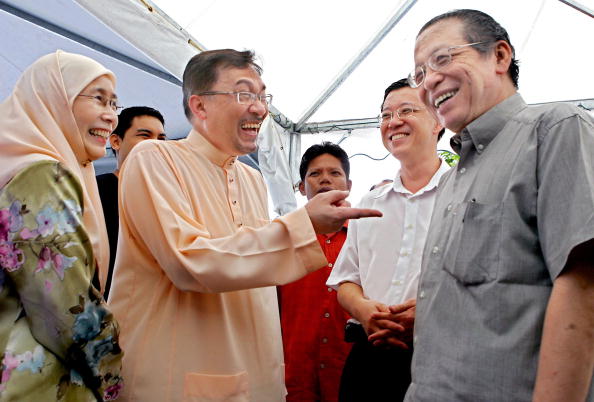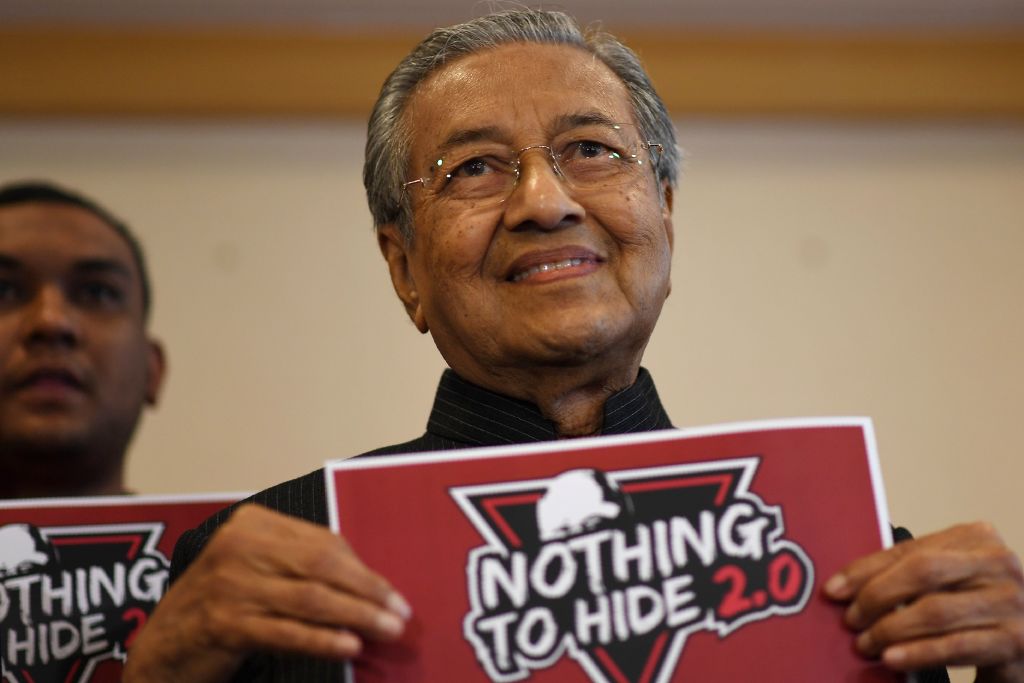The former Prime Minister of Malaysia, Mahathir Mohamad, is probably the most active 92-year-old man around.
In addition to forming a new political party and preparing to run in Malaysia's next general election, he also finds time to write a blog.
While he usually writes about current affairs, on Nov. 1 he posted something a little different.
Expressed regret for Operation Lalang
In the post, written in English, Mahathir expressed regret for the 1987 crackdown which rounded up 119 people under Malaysia's Internal Security Act (ISA), codenamed Operation Lalang. He also insisted that it was not his decision.
"1. The first thing I did when I became Prime Minister was to order the release of 21 political prisoners under Internal Security Act.
2. I did that because I did not like detention without trial ever since Aziz Ishak was detained.
3. I had hoped that during my tenure as Prime Minister I would not have to detain anyone.
4. I had asked the police whether we could do without the ISA. They did not agree, not even to reduce detention to one year.
5. I am now told that detainees were tortured. I regret that the detainees in Ops Lalang were tortured. This is against the law.
6. People have been detained under the ISA during the time of all three PMs before me. They had never been released on orders by the PMs.
7. I accept the blame even though the detention was not my decision."
It was a follow-up to an interview he gave on Oct. 27 to the Malaysian press, where he said of those who were detained:
"When I was in the Government, I vilified them because I wanted to win the elections. But they’re not as bad as I made them out to be then. Now I am together with them. And I have become close to them."
Mahathir was referring to the fact that since he left the United Malays National Organisation (UMNO), he is now considered part of the opposition.
[related_story]
What happened in Oct. 1987
-
The larger backdrop
The year was 1987, and Mahathir was the PM. Malaysia then was experiencing rising ethnic tensions.
One crucial turn of events was the decision by the Ministry of Education (headed by future DPM Anwar Ibrahim) to appoint non Chinese-educated supervisors to Chinese-language primary schools, a move seen as limiting the use of the Chinese language.
On Oct. 11, 1987, a protest rally was held in Kuala Lumpur. It was attended by prominent Chinese politicians like Lim Kim Sai from the Malaysian Chinese Association (MCA) that was part of the ruling coalition, and the leader of the opposition Democratic Action Party (DAP) Lim Kit Siang. They decided to boycott the schools with the new supervisors.
The MCA's participation with the DAP in a protest on behalf of the Chinese community gave the UMNO Youth movement an opportunity to present itself as the champions of the Malays.
On Oct 17, 1987, the chairman of UMNO Youth - future PM Najib Razak - led the estimated 10,000 strong rally and called for Lim's resignation.
-
Operation Lalang
It was among this febrile atmosphere that Operation Lalang was launched on Oct. 27, 1987.
Lalang is the Malay word for "weed", suggesting that the operation was meant to "weed out" undesirable elements. In total 119 people were arrested, including opposition politicians and social activists.
In addition, Malaysia's Home Ministry also revoked the licenses of English language newspapers The Star and Sunday Star, the Chinese language Sin Chiew Jit Poh and the Malay language Watan. They would only get their licenses back and resume operations in March 1988.
While most of the detainees were released unconditionally, some were detained for much longer, including DAP leaders Lim Kit Siang and Karpal Singh, and PAS members from the opposition. The last two detainees, Lim and his son Lim Guan Eng (the current Penang Chief Minister) were released in April 1989.
The operation evoked strong reactions. Tunku Abdul Rahman, Malaysia's first PM who had a regular column in The Star, commented that "Malaysia was on the road to a dictatorship."
 Kuala Lumpur, MALAYSIA: Malaysian former deputy prime minister Anwar Ibrahim (2nd L) and his wife Wan Azizah Wan Ismail (L) share a joke with opposition Democratic Action Party secretary-general Lim Guan Eng (2nd R) and his father Lim Kit Siang (R) during their Eid al-Fitr party in Kuala Lumpur, 29 October 2006. (TEH ENG KOON/AFP/Getty Images)
Kuala Lumpur, MALAYSIA: Malaysian former deputy prime minister Anwar Ibrahim (2nd L) and his wife Wan Azizah Wan Ismail (L) share a joke with opposition Democratic Action Party secretary-general Lim Guan Eng (2nd R) and his father Lim Kit Siang (R) during their Eid al-Fitr party in Kuala Lumpur, 29 October 2006. (TEH ENG KOON/AFP/Getty Images)
-
Why say this now?
Politics makes for strange bedfellows. Mahathir's new political party is actually allied with the DAP in an opposition coalition known as the Pakatan Harapan (Pact of Hope).
With Lim Kit Siang and others holding him responsible for Operation Lalang and calling on him to apologise, the incident remains a point of contention between Mahathir and his new allies as he prepares to contest the next GE.
His latest remarks have been said to be "...as close to an apology as the former detainees are ever going to get from Dr Mahathir."
Mahathir has always maintained he was acting on the advice of the police, specifically Inspector General of Police Mohd Hanif Omar, who supposedly told him that the operation had to be conducted in the interest of national security.
"I didn’t agree with it. I asked the police to accept that we must abolish the ISA (Internal Security Act). The police didn’t agree. I, bound by the security advice from the police, could not go against the police."
After all that has been said and done, it remains to be seen if this would be sufficient to heal the rift over the years and also allow him to gain an advantage over PM Najib, his political nemesis.
Top image from MANAN VATSYAYANA/AFP/Getty Images
Related Stories:
If you like what you read, follow us on Facebook, Instagram, Twitter and Telegram to get the latest updates.
